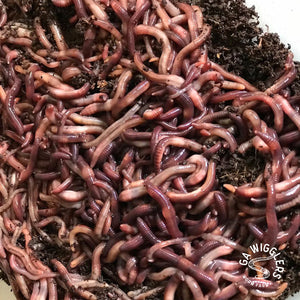

However, worm farms can also be used for the purpose of fishing. Now, these are usually established as means of composting and recycling food and other organic wastes with the aim of creating nutrient rich fertilizer and compost for gardening needs. A worm farm is a collective community of worms. Worms are gathered and fed to promote reproduction for composting - with the added focus on collection of the natural production of worm waste (vermicompost) for boosting the production of plants and food-producing gardens.Yes, you heard right, here we are talking about a worm farm. Vermiculture is an olden practice gaining popularity and being applied today as a waste management effort. Seek online vermiculture communities offering tips for easy use of Red Wigglers when establishing a controlled environment composting program. Researching videos found on online will inspire your worm farming efforts but there also are other ways to learn about the many benefits of raising Red Wigglers. Following the simple directions to not feed them dairy or animal products will guide you to success. Voracious eaters, these Red Wigglers will consume most fruit and veggie scraps and they will eat through cardboard and shredded paper. But simple composting with Red Wigglers can make a difference. Yard waste, such as dried leaves and other organic matter, along with excess fruit and vegetable scraps, are abundantly discarded and take up too much space in landfills. Whether choosing to raise Worm Nerd Red Wigglers as a family composting project in the basement or garage, or as a side business, prepare to become amazed at how these fascinating creatures provide solutions.


Vermiculture - one small pound of wiggle for garden magic, one giant wiggle toward landfill food waste reduction.


 0 kommentar(er)
0 kommentar(er)
